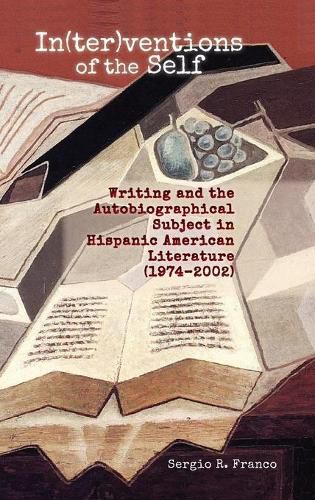Readings Newsletter
Become a Readings Member to make your shopping experience even easier.
Sign in or sign up for free!
You’re not far away from qualifying for FREE standard shipping within Australia
You’ve qualified for FREE standard shipping within Australia
The cart is loading…






This title is printed to order. This book may have been self-published. If so, we cannot guarantee the quality of the content. In the main most books will have gone through the editing process however some may not. We therefore suggest that you be aware of this before ordering this book. If in doubt check either the author or publisher’s details as we are unable to accept any returns unless they are faulty. Please contact us if you have any questions.
This book is in the Cambria Latin American Literatures and Cultures Series headed by Roman de la Campa, the Edwin B. and Lenore R. Williams Professor Emeritus of Romance Languages at the University of Pennsylvania.
This book is the first to incorporate close readings and analyses of the autobiographical texts of five canonical writers (including three Nobel Prize winners): Gabriel Garcia Marquez, Margo Glantz, Pablo Neruda, Severo Sarduy, and Mario Vargas Llosa. The study’s novelty lies in its examination of a corpus that has never before been systematically studied.
In(ter)ventions of the Self focuses on the examination of notions of subjectivity, identity, truth, verisimilitude, race, gender, ideology, image, memory, body, and eroticism as they are represented in the symbolic space of the autobiographical discourse of these authors. The text strives to capture the characteristic traits of these authors’ self-representation during the period beginning with the 1974 publication of Pablo Neruda’s Confieso que he vivido to 2002, when Garcia Marquez’s Vivir para contarla was published. These dates correspond both to the increase in the production of autobiographical texts in Hispanic America as well as to the shift from a modern to a postmodern sensibility. This book thus examines the Hispanic American autobiographical discourse in terms of the invalidation or problematization of the great metanarratives of progress and liberation, the debilitation of the political, the emergence of marginal and marginalized subjectivities, an increased ecological consciousness, the climax of a social trend towards the visual and the spatial, as well as the vindication of intimism and the value of sensitivity and everyday socialities.
This book will be a valuable resource for literary scholars and graduate students specializing in the study of the writers examined, historians and cultural critics studying contemporary Latin America, and specialists in autobiographies and memoirs.
$9.00 standard shipping within Australia
FREE standard shipping within Australia for orders over $100.00
Express & International shipping calculated at checkout
This title is printed to order. This book may have been self-published. If so, we cannot guarantee the quality of the content. In the main most books will have gone through the editing process however some may not. We therefore suggest that you be aware of this before ordering this book. If in doubt check either the author or publisher’s details as we are unable to accept any returns unless they are faulty. Please contact us if you have any questions.
This book is in the Cambria Latin American Literatures and Cultures Series headed by Roman de la Campa, the Edwin B. and Lenore R. Williams Professor Emeritus of Romance Languages at the University of Pennsylvania.
This book is the first to incorporate close readings and analyses of the autobiographical texts of five canonical writers (including three Nobel Prize winners): Gabriel Garcia Marquez, Margo Glantz, Pablo Neruda, Severo Sarduy, and Mario Vargas Llosa. The study’s novelty lies in its examination of a corpus that has never before been systematically studied.
In(ter)ventions of the Self focuses on the examination of notions of subjectivity, identity, truth, verisimilitude, race, gender, ideology, image, memory, body, and eroticism as they are represented in the symbolic space of the autobiographical discourse of these authors. The text strives to capture the characteristic traits of these authors’ self-representation during the period beginning with the 1974 publication of Pablo Neruda’s Confieso que he vivido to 2002, when Garcia Marquez’s Vivir para contarla was published. These dates correspond both to the increase in the production of autobiographical texts in Hispanic America as well as to the shift from a modern to a postmodern sensibility. This book thus examines the Hispanic American autobiographical discourse in terms of the invalidation or problematization of the great metanarratives of progress and liberation, the debilitation of the political, the emergence of marginal and marginalized subjectivities, an increased ecological consciousness, the climax of a social trend towards the visual and the spatial, as well as the vindication of intimism and the value of sensitivity and everyday socialities.
This book will be a valuable resource for literary scholars and graduate students specializing in the study of the writers examined, historians and cultural critics studying contemporary Latin America, and specialists in autobiographies and memoirs.